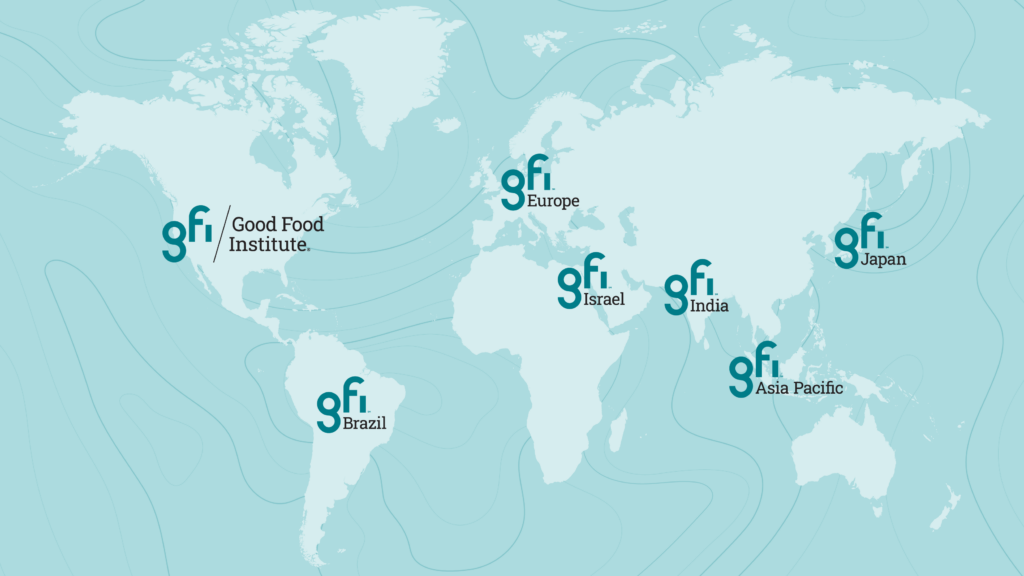4 Mins Read
To meet Japan’s alternative protein potential, the Good Food Institute has opened an office in the country just as a new prime minister is sworn in.
The Good Food Institute (GFI) has opened a new office in Japan, banking on the country’s robust economy, public investment potential, and top-class research infrastructure.
The alternative protein think tank’s newest office joins its affiliates in Singapore, India, Israel, Europe, Brazil, and the US.
“Japan is the world’s fourth-largest economy and an R&D leader with top-tier research institutions and manufacturing facilities, all stemming from a vibrant commercial ecosystem recognised globally for its high quality,” Kimiko Hong-Mitsui, interim director of GFI Japan, told Green Queen.
“Japan now has the ability to invest significant resources into the fundamental R&D necessary to become a world leader in alternative proteins,” she added. “This combination of public funding potential, a world-class research ecosystem, and the ability to scale manufacturing to a global level makes Japan an ideal location for GFI to focus its efforts.”

GFI Japan lays out priorities and seafood focus
Japan is home to a number of alternative protein startups, from vegan egg maker Umami United and plant-based meat producer DAIZ, to cultivated meat players like Integriculture.
These companies have the ability to propel Asia’s food system in a direction that would feed the continent’s “skyrocketing meat demand in a more secure and sustainable way”, said Hong-Mitsui.
“Just as Japan developed and exported the cutting-edge technologies that brought solar power and other renewables to the world, we now have an opportunity to pioneer the next generation of alternative proteins – the food equivalents of clean energy,” she said.
GFI Japan has laid out a number of strategic priorities, which include identifying opportunities for state funding for R&D and commercialisation of alternative proteins, supporting regulatory efforts for cultivated meat, and creating better links between local and international companies in the space.
The think tank also aims to provide translations of relevant reports and resources, and help foster new convocations between Japanese research institutions and alternative protein scientists globally. “We are keen to ensure that knowledge generated globally is easily accessible to Japanese industry leaders through the translation of materials, and vice versa,” said Hong-Mitsui. “This has already begun with the translation of key reports into Japanese, with many more to come.”
One thing that separates Japan from GFI’s other offices is its taste for seafood. “During our strategic planning process, which will aim to identify the highest-impact and most tractable areas in which to invest our time and resources, we will consult with a wide variety of Japanese policymakers and industry stakeholders,” notes Hong-Mitsui. “We anticipate that alternative seafood will be a significant feature in those discussions.”
She added: “The fundamentals for building a world-leading industry are already present in Japan – namely the ability of the government to fund critical R&D, and a business ecosystem with a proven track record of scaling high-tech industries.”

Targeting policy and regulatory progress for alternative proteins
The alternative protein ecosystem in Japan has received plenty of attention from its government. Outgoing prime minister Fumio Kishida has called these future foods a key part of “realising a sustainable food supply”, and his administration has awarded tens of millions of dollars in investments to companies, as part of a larger food-sustainability moonshots.
But there’s a change of the guard atop Japan’s government, with Shigeru Ishiba taking over as the country’s prime minister today. “The former prime minister publicly called for scaling the cultivated meat industry – a call fully supported by GFI and the entire alternative protein ecosystem,” said Hong-Mitsui.
“We will continue working with policymakers in the months and years to come to fulfill this vision and expect that alternative proteins’ potential to contribute to Japan’s economy and employment will be of strong interest to any government.”
Under Kishida’s regime, the Ministry of Health, Labour and Welfare transferred its food hygiene standards division to the Consumer Affairs Agency, while continuing to oversee food safety. It meant that companies must liaise with two agencies on regulatory conversations, but makes the prime minister the ultimate authority on these matters.
“Officials are making steady progress in developing a novel food regulatory framework. Unlike countries that conduct individual consultations, Japanese officials primarily communicate with industry associations that speak on behalf of alternative protein companies, which fosters better market readiness for the sector as a whole,” said Hong-Mitsui.
“GFI Japan has already begun to collaborate with these local stakeholders by providing relevant resources and guidance to further support this regulatory development process.”
Over the next 12 months, GFI Japan will bring on additional employees and work to scale up its operations. “GFI Japan will be focused on unlocking public funding in order to grow a strong domestic alternative protein sector, with significant potential across plant-based, cultivated, and fermentation-derived foods,” explains Hong-Mitsui.
“We will also identify opportunities for greater research collaborations between government, academia, and industry, and elevate Japan’s unique points of difference,” she added.



